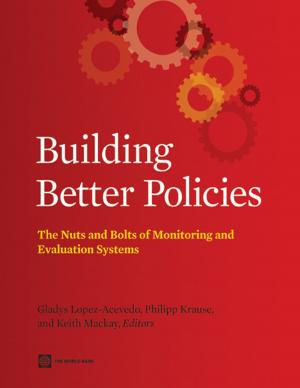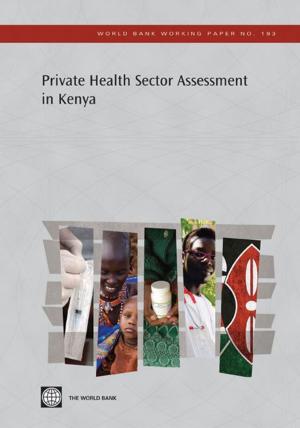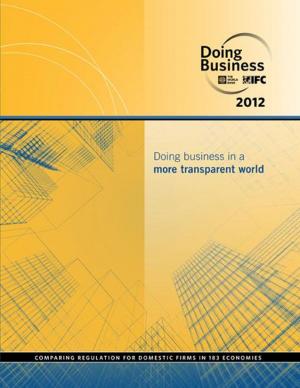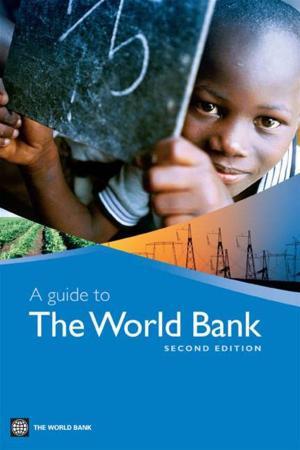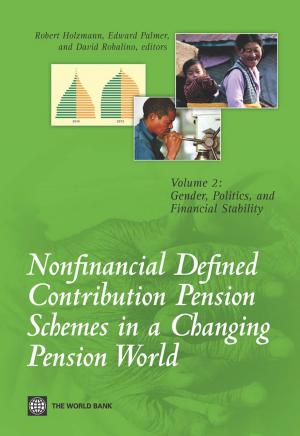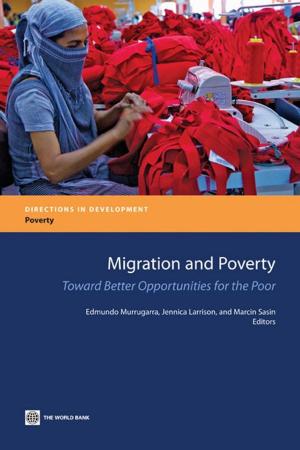Bringing Finance To Pakistan's Poor: Access To Finance For Small Enterprises And The Underserved
Business & Finance, Finance & Investing, Banks & Banking| Author: | Nenova Tatiana; Niang Cecile Thioro | ISBN: | 9780821380307 |
| Publisher: | World Bank | Publication: | November 13, 2009 |
| Imprint: | Language: | English |
| Author: | Nenova Tatiana; Niang Cecile Thioro |
| ISBN: | 9780821380307 |
| Publisher: | World Bank |
| Publication: | November 13, 2009 |
| Imprint: | |
| Language: | English |
This book reflects the first comprehensive survey and dataset of access to financial products by the Pakistani population. In Pakistan, access to financing is at low levels, though expanding quickly. Half of Pakistani adults, mostly women, do not engage in the financial system at all. The formal microfinance sector reaches less than 2 percent of the poor, as opposed to over a quarter in neighboring countries. Yet micro and small business, together with remittances, play a central role in family economic inclusion and escaping the poverty trap. Policy measures have been timely, but are not enough. Financial institutions have lagged behind in technological advances, client segmentation, product diversification, and simplified processes and procedures. The strongest driver of low financial access in the long run is income.This book finds that formal markets could learn from and cooperate with informal arrangements to increase outreach. A focus on micro-savings holds tremendous potential. Women are a viable and unexplored client base. Mobile technology can help expand access considerably, especially in the informal sector. Partnerships among Pakistan Post, financial institutions, and telecom operators are promising as are new approaches suitable for smaller enterprises, such as bank downscaling. Further integration of microfinance, remittances, and small enterprise finance into the financial system would strengthen sustainability, competition, efficiency, and market discipline. An accompanying CD contains summary statistics.
This book reflects the first comprehensive survey and dataset of access to financial products by the Pakistani population. In Pakistan, access to financing is at low levels, though expanding quickly. Half of Pakistani adults, mostly women, do not engage in the financial system at all. The formal microfinance sector reaches less than 2 percent of the poor, as opposed to over a quarter in neighboring countries. Yet micro and small business, together with remittances, play a central role in family economic inclusion and escaping the poverty trap. Policy measures have been timely, but are not enough. Financial institutions have lagged behind in technological advances, client segmentation, product diversification, and simplified processes and procedures. The strongest driver of low financial access in the long run is income.This book finds that formal markets could learn from and cooperate with informal arrangements to increase outreach. A focus on micro-savings holds tremendous potential. Women are a viable and unexplored client base. Mobile technology can help expand access considerably, especially in the informal sector. Partnerships among Pakistan Post, financial institutions, and telecom operators are promising as are new approaches suitable for smaller enterprises, such as bank downscaling. Further integration of microfinance, remittances, and small enterprise finance into the financial system would strengthen sustainability, competition, efficiency, and market discipline. An accompanying CD contains summary statistics.

